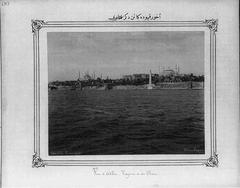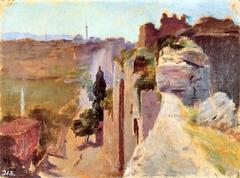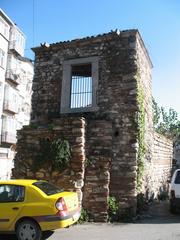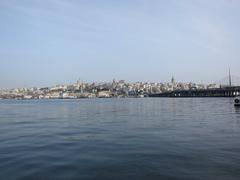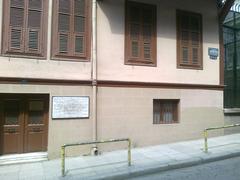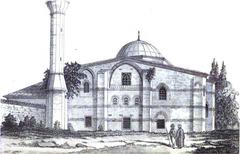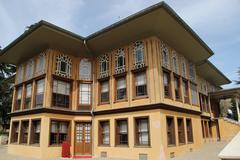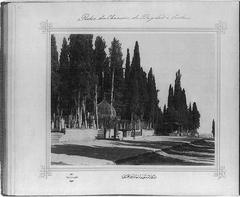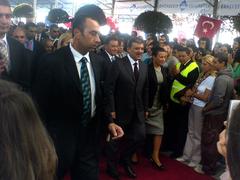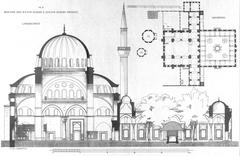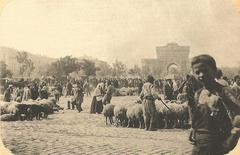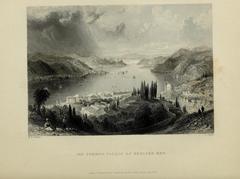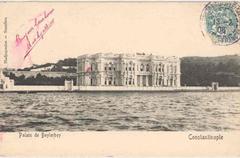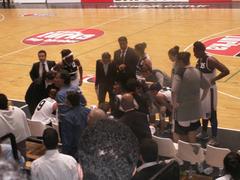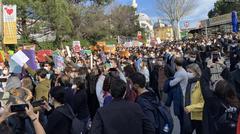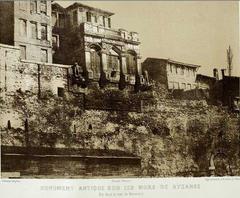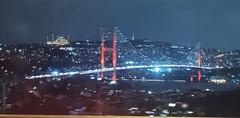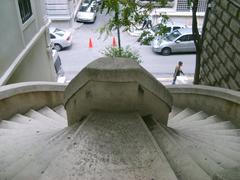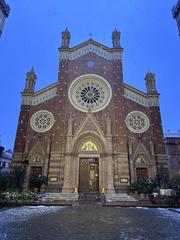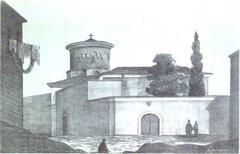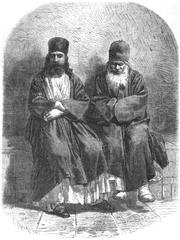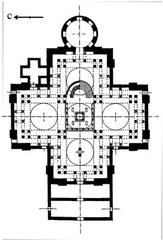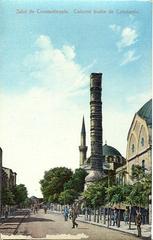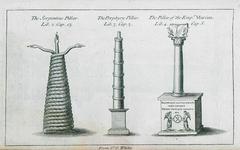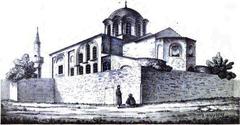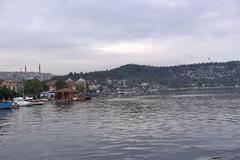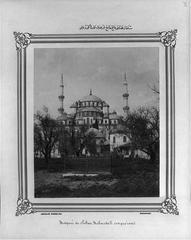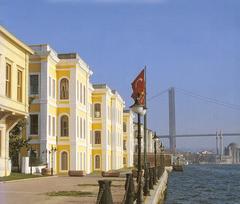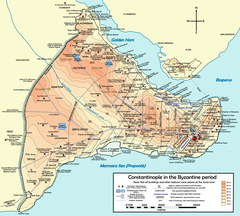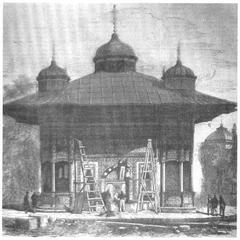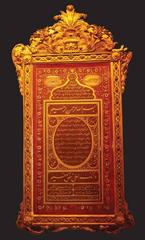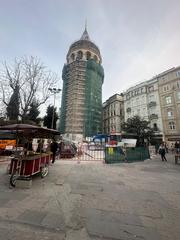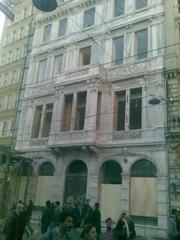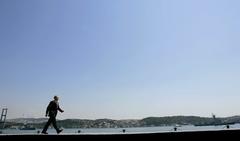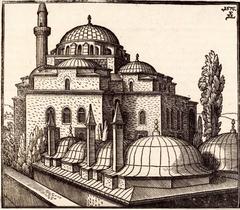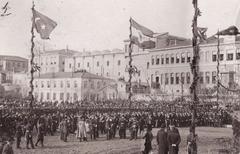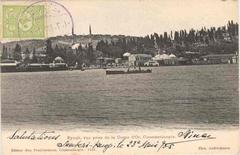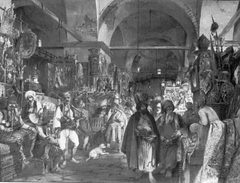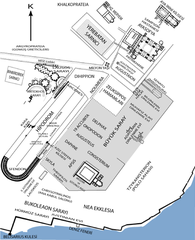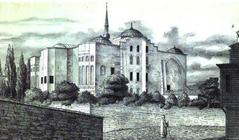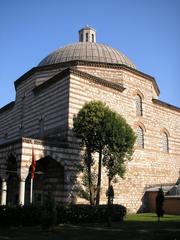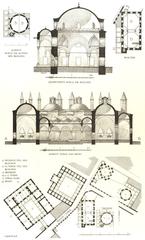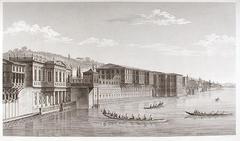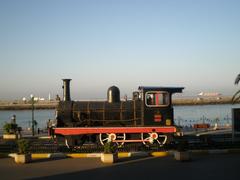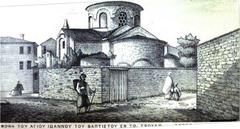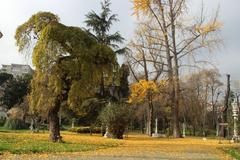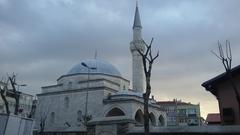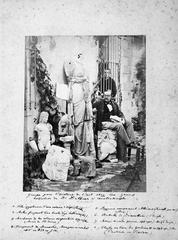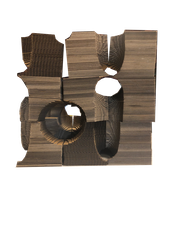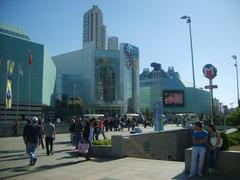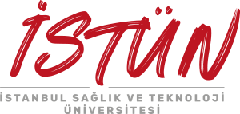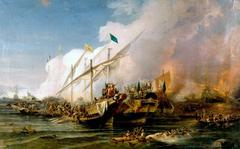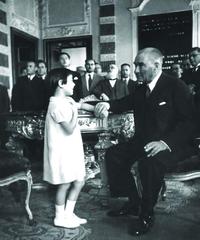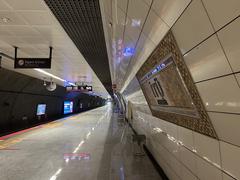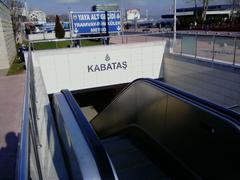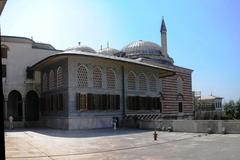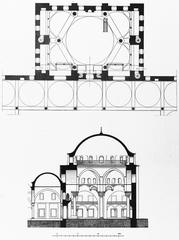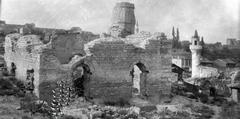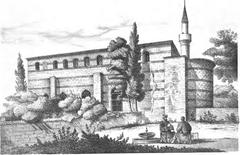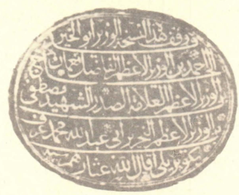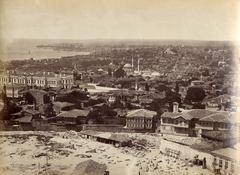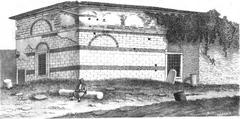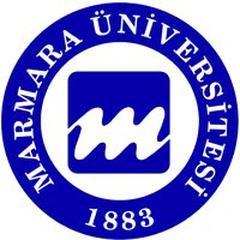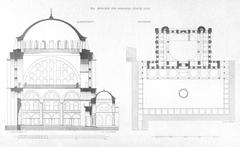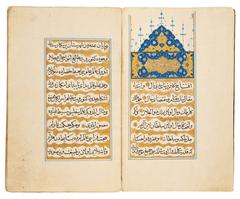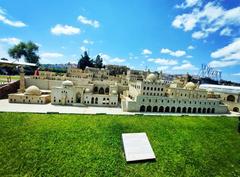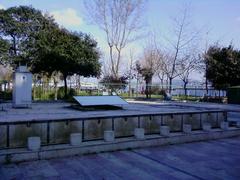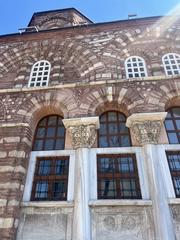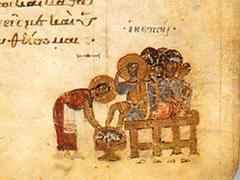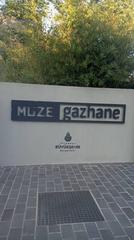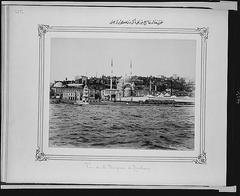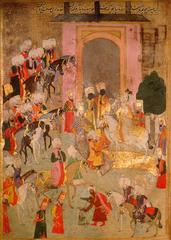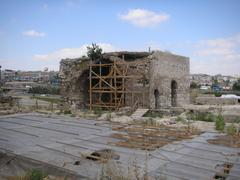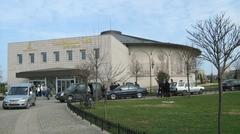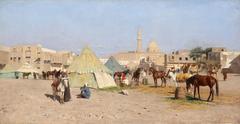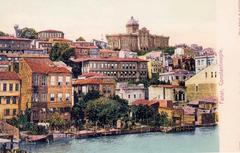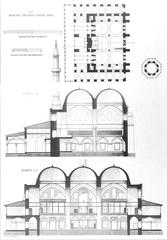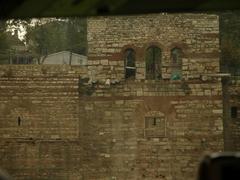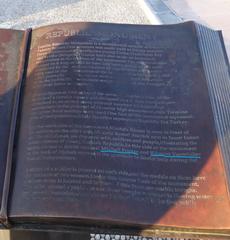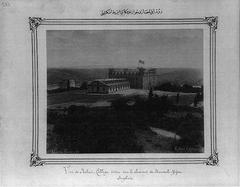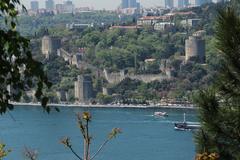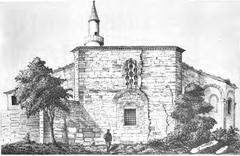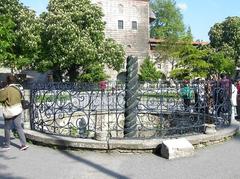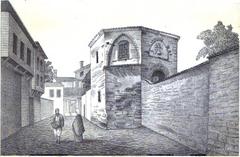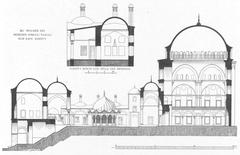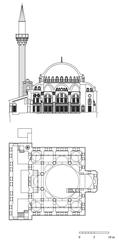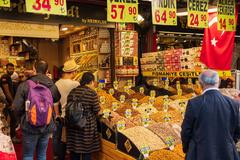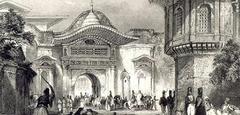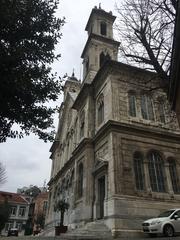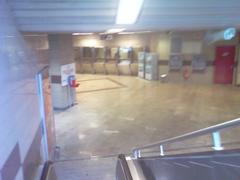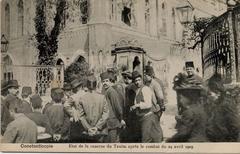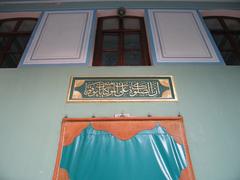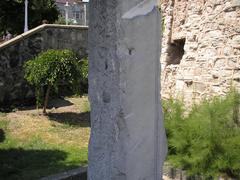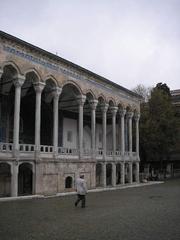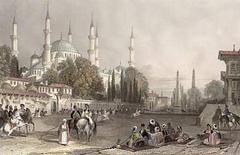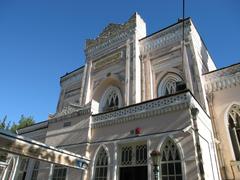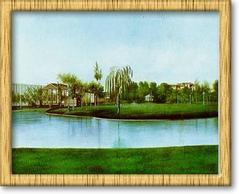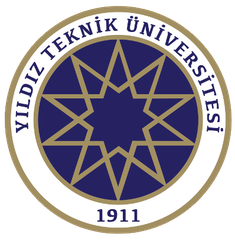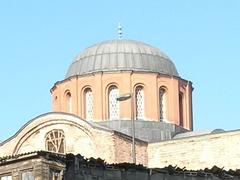Istanbul Museum Of The History Of Science And Technology In Islam
Istanbul Museum of the History of Science and Technology in Islam: Visiting Hours, Tickets, and Guide
Date: 14/06/2025
Introduction
The Istanbul Museum of the History of Science and Technology in Islam is a unique cultural destination that celebrates the rich scientific and technological heritage of the Islamic Golden Age, spanning from the 8th to the 16th centuries. Located in the heart of Istanbul, near the historic Topkapi Palace and set within the scenic Gülhane Park, the museum offers visitors an immersive journey through the innovations and discoveries that shaped not only the Islamic world but also global scientific progress (Official Museum Website; Istanbul E-pass; Istanbul Clues).
Founded in 2008 under the vision of Prof. Dr. Fuat Sezgin, the museum dispels common misconceptions about scientific development and highlights the pivotal role of Islamic scholars in preserving, advancing, and transmitting knowledge across civilizations.
This guide covers the museum’s historical background, exhibit highlights, practical visiting information (including opening hours and ticketing), accessibility details, nearby attractions, and helpful tips to ensure a rewarding visit.
Table of Contents
- Introduction
- Historical Context and Significance
- The Golden Age of Islamic Science
- Key Scientific Fields and Innovations
- Preserving and Sharing Knowledge
- Visiting Information
- Exhibition Highlights and Educational Experiences
- Visual and Multimedia Resources
- FAQ (Frequently Asked Questions)
- Conclusion and Recommendations
- References
Historical Context and Significance
The Istanbul Museum of the History of Science and Technology in Islam stands as Turkey’s first institution dedicated to the scientific advancements of the Islamic Golden Age, and only the second of its kind worldwide after its Frankfurt counterpart. Its setting in the restored Ottoman imperial stables adjacent to Topkapi Palace underscores the deep connection between Istanbul’s imperial past and its role as a crossroads of knowledge and culture (Official Museum Website).
The museum’s mission is not only to showcase groundbreaking artifacts and inventions but also to foster a greater appreciation for the contributions of Islamic scholars to world civilization.
The Golden Age of Islamic Science
From the 8th to the 16th centuries, the Islamic world witnessed an extraordinary period of intellectual flourishing. Scholars in cities such as Baghdad, Cairo, Cordoba, and Samarkand translated, preserved, and expanded upon Greek, Roman, Persian, and Indian scientific works. This spirit of inquiry led to significant advancements in mathematics, astronomy, medicine, chemistry, engineering, geography, and more, laying the groundwork for the European Renaissance (Istanbul E-pass).
Key Scientific Fields and Innovations
Mathematics and Algebra
The museum’s exhibits on mathematics highlight the revolutionary work of Al-Khwarizmi, whose treatises on algebra and algorithms paved the way for future generations. Visitors can explore manuscripts and models that illustrate Islamic contributions to geometry, trigonometry, and the decimal system.
Astronomy and Cartography
Replicas of early observatories, astrolabes, celestial globes, and armillary spheres demonstrate the sophistication of Islamic astronomy. Notable is the globe based on a 9th-century world map commissioned by Caliph al-Ma’mun, reflecting advanced geographical knowledge and navigational expertise.
Medicine and Pharmacology
The Ibn-i Sina Botanical Garden presents 26 medicinal plants referenced in Avicenna’s “The Canon of Medicine.” The museum also displays surgical instruments, manuscripts, and anatomical models, highlighting the legacy of physicians like Avicenna and Al-Razi (Turkish Museums).
Optics and Physics
Al-Haytham’s foundational research on light, vision, and the camera obscura is brought to life through interactive displays that invite visitors to experiment with lenses, mirrors, and other optical devices.
Engineering and Mechanics
A full-scale working replica of Al-Jazari’s Elephant Clock serves as the museum’s centerpiece, showcasing medieval Islamic engineering ingenuity. Additional exhibits cover mechanical pumps, automata, and other devices that influenced the development of robotics.
Surgical Instruments
The museum features over 200 surgical instruments inspired by the work of Al-Zahrawi, considered the “father of modern surgery.” These displays illustrate how Islamic medicine set standards for surgical practice.
Preserving and Sharing Knowledge
Institutions like the House of Wisdom in Baghdad played a crucial role in safeguarding and translating ancient texts. The museum details how Islamic scholars ensured the survival and dissemination of Greek, Roman, and Persian knowledge, contributing directly to the scientific awakening of Europe.
Visiting Information
Museum Hours and Tickets
- Opening Hours: Tuesday to Sunday, 9:00 AM – 5:00 PM. Closed on Mondays and public holidays.
- Ticket Prices: Adults: 50 Turkish Lira; Students/Seniors: 25 Turkish Lira; Children under 12: Free.
- Where to Buy: Tickets are available at the museum entrance or online via the official website. It is advisable to purchase tickets in advance during peak seasons.
Accessibility
The museum is wheelchair accessible, featuring ramps, elevators, and accessible restrooms. Multilingual panels and audio guides ensure an inclusive experience for all visitors.
Guided Tours and Special Events
Guided tours can be arranged via the museum’s website. Educational workshops and temporary exhibitions are hosted throughout the year—check the official site for current offerings.
Facilities
On-site amenities include restrooms, a gift shop with educational souvenirs, and the Cinevision Screening Room for audiovisual presentations.
Travel Tips and Nearby Attractions
The museum is located in Gülhane Park, within easy walking distance of Topkapi Palace, the Hagia Sophia, and the Istanbul Archaeological Museums. Reach the museum via the T1 tram line (Sultanahmet or Gülhane stations), followed by a short, scenic walk through the park. Nearby cafés and eateries provide convenient dining options.
Exhibition Highlights and Educational Experiences
Spanning 3,500 square meters, the museum is divided into twelve thematic sections:
- Astronomy
- Clocks and Marine Technology
- War Technology
- Medicine
- Mining
- Physics
- Mathematics and Geometry
- Architecture and City Planning
- Chemistry and Optics
- Geography
- Ibn Sina Botanical Garden
- Cinevision Screening Room
Interactive multimedia presentations and hands-on models make complex scientific concepts accessible and engaging for all ages. Notable photographic spots include the Elephant Clock and the Astronomy section.
Visual and Multimedia Resources
High-quality photos, virtual tours, and educational videos are available on the museum’s official website and social media channels. These resources help prospective visitors preview exhibits and plan their visit (Virtual Tour of the Museum; Museum Photo Gallery).
Frequently Asked Questions (FAQ)
Q: What are the museum’s visiting hours?
A: Tuesday to Sunday, 9:00 AM–5:00 PM. Closed on Mondays and public holidays.
Q: How can I purchase tickets?
A: Buy tickets at the entrance or online via the official museum website.
Q: Is the museum accessible for people with disabilities?
A: Yes, the museum provides comprehensive accessibility features.
Q: Are guided tours available?
A: Yes, guided tours can be booked in advance.
Q: Can I take photographs inside the museum?
A: Photography is allowed in most areas, but flash and tripods may be restricted.
Conclusion and Recommendations
The Istanbul Museum of the History of Science and Technology in Islam is a testament to the dynamic intellectual and scientific achievements of the Islamic Golden Age. Through its comprehensive exhibits and educational programs, the museum invites visitors to appreciate the interconnectedness of world civilizations and the enduring impact of Islamic scholars on modern science. Conveniently located near Istanbul’s major historical sites, the museum is accessible, family-friendly, and ideal for anyone with an interest in history, science, or culture.
To make the most of your visit:
- Check the official website for the latest opening hours and ticket options.
- Consider booking guided tours or using audio guides for deeper engagement.
- Explore nearby attractions like Topkapi Palace, Hagia Sophia, and Istanbul Archaeological Museums.
- Download the Audiala app for curated tours and follow museum social media channels for updates.
References
- Official Museum Website
- Istanbul E-pass
- Istanbul Clues
- Turkish Museums
- Muze.gen.tr
- Virtual Tour of the Museum
- Museum Photo Gallery

